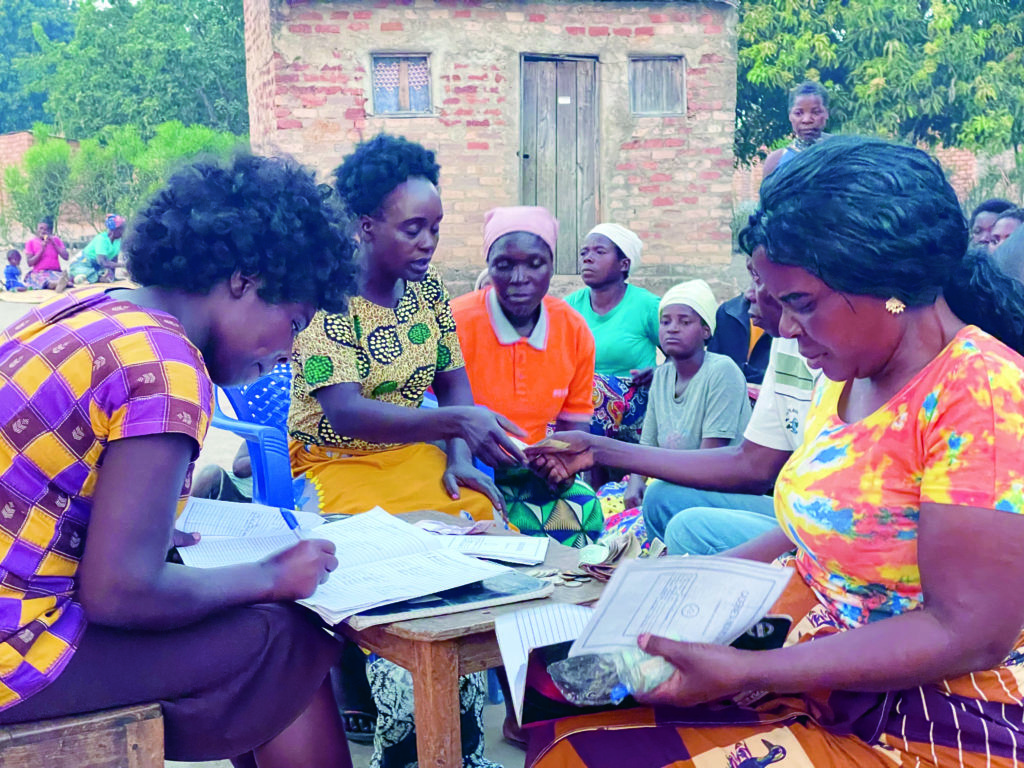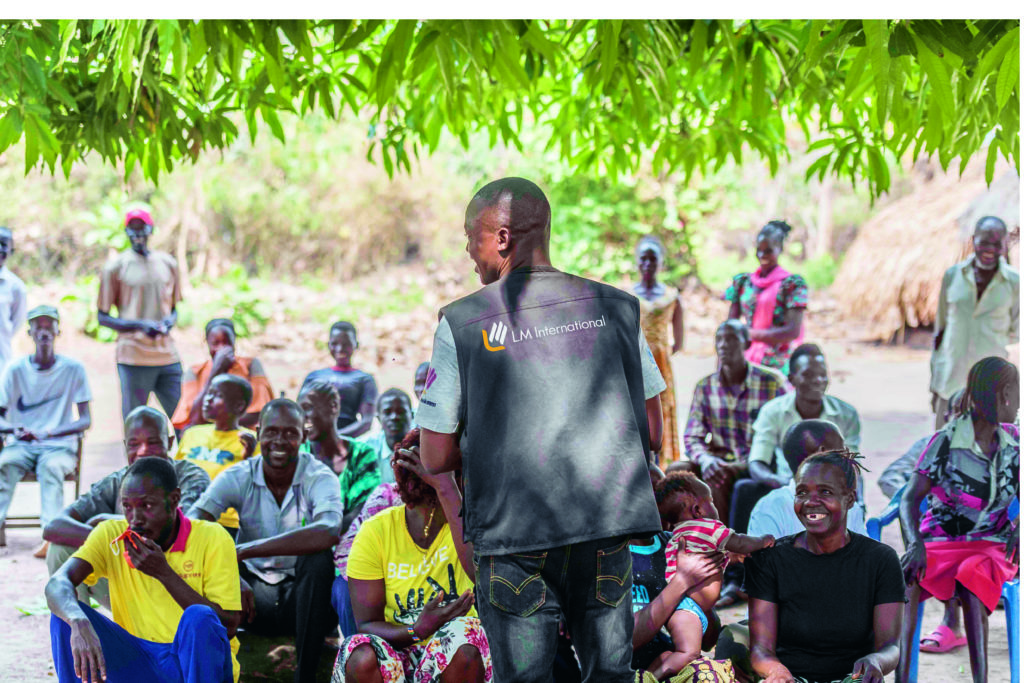How LM International is taking the CHS to the next level to improve global humanitarianism
In this new blog, Josephine shares how and why LM International is advocating strongly for the CHS to be adopted globally, especially by donors.
Advocating for the CHS at a Global Level
Beyond our own improvements, LM International is totally committed to advocating for the broad adoption of the Core Humanitarian Standard (CHS). Our strong partnership with the Swedish International Development Cooperation Agency (Sida) has been instrumental in this. In 2018, we were involved in organising a global capacity development conference on CHS for Sida’s partners. Since then, we’ve successfully advocated for CHS to be included in the Swedish government’s strategy for civil society support.
“Now, up to 80% of the costs for CHS Certification can be covered by Sida for partners, which is a groundbreaking step. This ensures that smaller organisations, particularly those working in fragile states, are not left behind due to financial constraints.”
This advocacy doesn’t stop at Sida. We are working with other donors, including DANIDA in Denmark, and hope to see the CHS recognised and funded by more governments and agencies across Europe and beyond. I have also recently joined the CHS Alliance’s Donor Recognition Working Group to share LM International’s experiences and push for wider recognition of CHS among global donors.
The CHS in Fragile States and Local Leadership
LM International is known for working in some of the most challenging environments like Sudan, Tchad, Yemen, the DRC, and Somalia, to name a few. These are the places where CHS has the potential to make the most significant impact, but they are also the hardest to reach. Through our work, we aim to bring the voices of fragile states to the centre of the CHS conversation. Our partners in these regions are often grassroots, community-based organisations, and it’s critical that they are equipped and empowered to meet the CHS commitments, despite their limited resources.

Women in Chimoio, Manica Province in Mozambique, collect their savings and review community budgets as part of a social audit. Credit: LM International/Isabella Olsson
That’s why we focus not just on national NGOs but on supporting the more local, informal networks and community-led organisations. These grassroot organisations are closest to the people, and if they are not included, we risk leaving behind those who need help the most. By covering costs and providing ongoing capacity development, we ensure that the CHS isn’t just for the large, well-funded organisations but can be embraced at the community level as well.
Our History with the CHS
In fact, LM International has a long history with the CHS. With our longstanding commitment to people-centred humanitarian principles, the ideas behind the CHS have never been entirely new for us—we’ve been committed to the core values of accountability and local leadership for years.
But, as our organisation grew in size and complexity, we realised that verifying against the CHS could take us to the next level. We wanted CHS certification not just to comply but to actively improve the way we operate, from the leadership level to our local implantation level and local partnerships.
“The CHS, for us, is more than a checklist. It’s a powerful tool that drives local leadership by giving a voice to rights holders—refugees, communities, and those affected by crises. This approach ensures that interventions are not only well-meaning but co-created with those they are meant to serve. It’s about investing in local communities to design the solutions they need, rather than imposing external fixes.”

Community members in South Sudan share their feedback on an ongoing WASH intervention as part of an Integrated Water Resource Management approach. Credit: LM International/Torleif Svensson
CHS as the Driver of Accountability
One of the biggest improvements we’ve made, thanks to measuring and improving using the CHS, is reinforcing our approach to accountability, especially around Whistleblowing and Complaints mechanisms. Before CHS certification, we already had systems in place, but verifying pushed us to formalise and refine these processes. We have since contracted an external company to handle our whistleblowing system, which brings an added layer of transparency and trust. This external oversight ensures that complaints are not only addressed promptly but also fairly, with no possibility of interference by senior management. For our complaints mechanism, which was previously run manually, we are moving to a more automated, structured system that mirrors that of our successful whistleblowing process.
We have also strengthened our zero-tolerance policy on sexual exploitation, abuse, and harassment (PSEAH). Given the tragic and ongoing challenges within the sector, including incidents in Ukraine, Sudan, and the Democratic Republic of Congo, it’s clear that these issues demand constant vigilance. CHS certification provides us with a framework to evaluate our PSEAH policies and continuously improve.
The CHS and Our Partners: Building Strength
One area where we saw an immediate impact of verification was in our partnerships. While we were doing relatively well in applying the CHS to our internal operations, our engagement with local partners needed more structure. CHS certification helped us build more robust systems for partner engagement, from offering annual CHS training to covering the costs for partner organisations to undertake self-assessment or certification.
“For example, we now have structured dialogues and training sessions with our partners across Africa, Latin America and Eastern Europe and Middle East. Earlier this year, we gathered over 60 partner organisations in Sub-Saharan Africa, in Nairobi for a CHS training, and we plan to repeat this at both national and regional levels. This ensures that our partners not only understand CHS but are also supported to apply it in their own contexts. Moreover, we’ve started offering financial support for partners to undergo their own CHS self-assessments, removing one of the biggest barriers—cost—that often prevents smaller organisations from committing to this vital Standard.”
Looking Ahead: A Collective Journey
At LM International, the CHS is not seen as a burden or a box-ticking exercise. It’s a continuous and exciting journey towards improvement, accountability, and transparency. Verifying against the CHS has helped us identify areas where we can do better, and it has provided us with the tools to implement those changes.
“For us, the CHS acts like an internal consultant, constantly pushing us to be the best version of ourselves.”
We believe that more organisations, especially donors, should embrace CHS. We’ve already challenged SIDA to get certified, and we believe other funding agencies should do the same. Ultimately, it’s about driving the whole humanitarian and development cooperation system towards higher standards of accountability and effectiveness.
In the words of my colleague and CHS focal point Julius Bitamazire: “You can’t lead from the top down; CHS has to be built from the ground up.” We are proud to be on this journey and invite others to join us as we continue to advocate for the CHS, locally and globally.
Find out more about CHS Alliance’s work to:
- Achieve recognition of the CHS across the aid system.
- Verify accountability performance.
- Support organisations to improve how they treat people affected by crisis.

